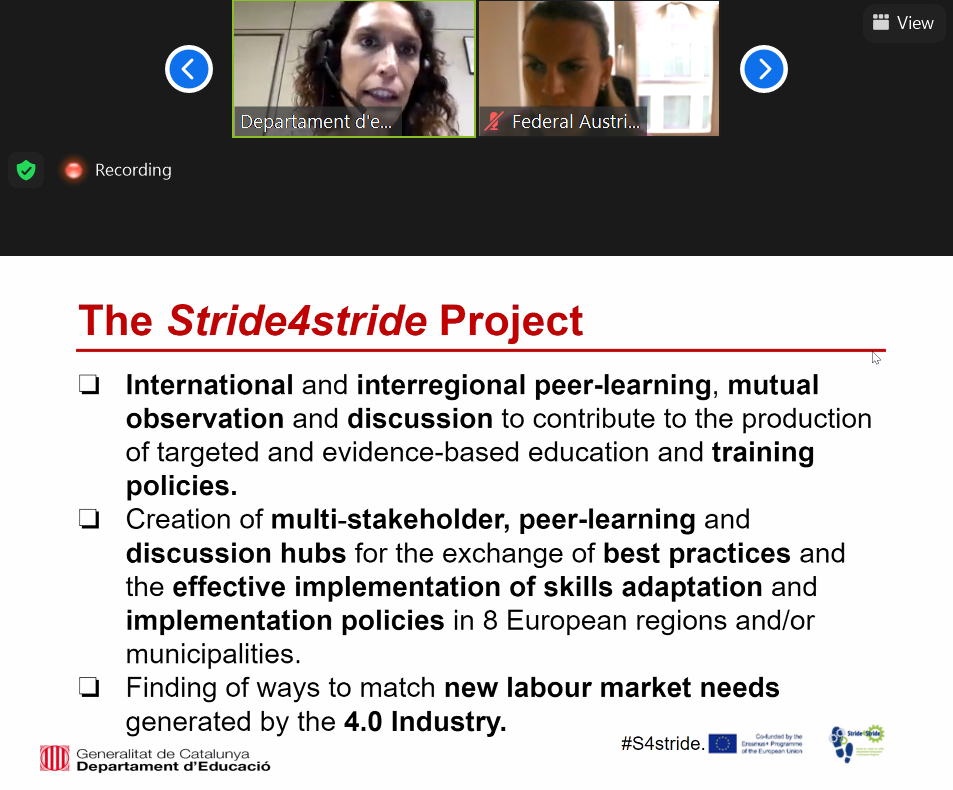Stride for Stride project showcased in the OECD Policy Dialogue on adult learning in cities
16/09/2021

On 9 September, the OECD organised the third workshop in the context of its policy dialogue on adult learning and cities. The aim of this event was to reflect on the way of strengthening the provision of adult learning through local partnerships. The event gathered representatives from non-governmental organisations, such as trade unions, economic chambers, non-profit organisations working in the field of lifelong learning but also regional and local governments.
Karen Maguire, Head of the Division, Local Employment, Skills and Social Innovation Division at OECD introduced the workshop by presenting the LEED program which aims at offering best practices on building communities with more and better jobs for all workers through effective policy implementation and local initiatives.
Then, representatives from the Trade Union Committee (TUAC) stressed the challenges faced by adult education since the beginning of the pandemic, which includes the reduction of training opportunities for workers in companies. They also presented the Sherpa project, aiming at training workers to guide and motivate their colleagues to catch lifelong learning opportunities. A representative from Eurochambres also took the floor to present examples of local training projects involving career guidance, skills forecasting and training courses in which the chambers of commerce are participating.
After that, Maria Pascual, Head of the International Projects Unit for VET, Department of Education of the government of Catalonia presented the work of the Department, focusing on the way in which companies are creating links with local stakeholders in the region, on skills provision. She also introduced the Stride for Stride project coordinated by the Brittany region, in which the department of education of Catalonia, EARLALL and other EARLALL member regions are partners. The project aims at promoting best practices for a more effective implementation of skills policies at regional level. The project includes four workshops allowing project partners to identify ideas that can be implemented in other regions. Maria Pascual insisted on the importance of regional cooperation, highlighting the same needs in different regions.
She was followed by Dearbháil Lawless, Executive Board member of EAEA (European Association for the Education of Adults) and Advocacy Lead of AONTAS (Irelands National Learning Organisation) who reflected on the role of non-government stakeholders in adult learning with a focus on community education and learning.
Participants where then split in two breakout rooms in which city-levels projects from London, Michigan works, Madrid and Calgary where presented.
Useful links
- Summary of the OECD Policy Dialogue on adult learning in cities
- The LEED program
- The Sherpa project
- The Stride for Stride project




